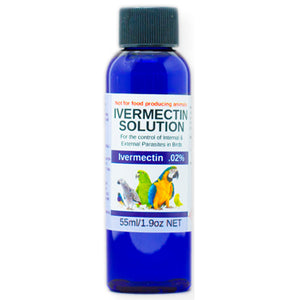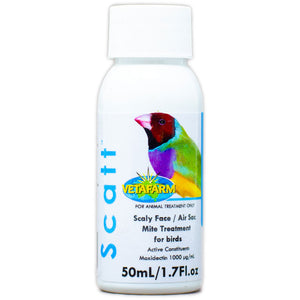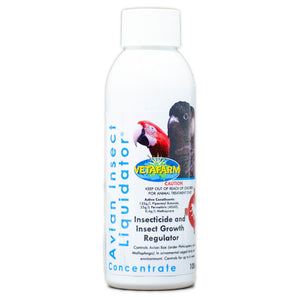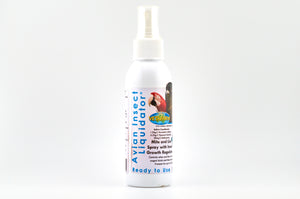Nutrition Failures
Health Articles / Nutrition Failures
By Malcolm Green
The most startling statistic presented to the symposium came from respected American avian vet G J Harrison. He pointed out that, according to official statistics, 99% of one year old American human children are suffering from some form of malnutrition. As he said "If we can't feed our children properly what chance do we have of feeding our birds properly". In his opinion 90% of the avian cases that he sees in his clinic have poor nutrition as the basis of their illness. If we fed our birds better they would live longer, happier lives. And they will breed better as well!
Another American, Laurie Hess of the Animal Medical Centre in New York, presented some research data that helps to quantify the extent of the bird nutrition problem.
There isn't enough space to present all of Laurie's data but she studied 135 pet birds that were eating, either all seed diets, seed and fruit diets or seed, fruit and pellet diets. Very few were eating a diet with 75% or more pellets and, since there are few bird vitamin and mineral supplements on the market in America, those birds not eating diets with that minimum amount of pellet were all deficient in one part of their nutritional requirements or another. In the whole study less than 2% of the birds were being fed adequately. Laurie Hess used recommended daily nutrient requirements as determined by Ritchie, Harrison and Harrison in 1994 as her definition of an adequate diet.
The following figures give some indication of the major areas where these birds were suffering.
- 67% had insufficient vitamin A in their diets.
- 97% of the birds studied had insufficient vitamin D3 in their diets.
- 98% of birds were getting less than the recommended calcium levels in their diets.
- 51% had less than the recommended phosphorus levels in their diets.
- But worse still 83% had a calcium:phosphorus ratio that was way out of balance. The only birds with an appropriate calcium:phosphorus ratio were being fed at least 75% pellets in their diets.
This highlights that, without some form of calcium supplementation, seed and seed and fruit and seed and table scrap type diets cannot provide the correct balance between these two important minerals.
One key feature of the whole symposium was that there was never any question amongst the delegates as to whether birds' diets should be supplemented. There was however sometimes quite heated debate about the method of supplementation. The North American expanded pellet manufacturers were well represented at the symposium. They argued that their method of feeding birds was the only way forward. The scientists from the Hanover Centre for Animal Nutrition voiced the opinion that seed based diets could be properly supplemented and so pellets were not the only way to guarantee good nutrition.
Having discussed this disagreement with a number of North American vets it became quite clear that, whilst Europe has a number of manufacturers producing vitamin and mineral supplements specifically for cage and aviary birds, this is not the case in North America. However, in the years since this symposium, European supplements have become much more easily available in the USA so American bird keepers now have a viable alternative to pellets.
So what are the options for you and your bird?
Pet (non-breeding) bird feeding is very simple. The basic diet, whether seed, fruit or nectar, should be supplemented with a suitable vitamin/mineral supplement. The selection of supplement depends on what other foods the bird is eating. Birds eating fruits and vegetables should have Daily Essentials3 sprinkled over the moist foods every day. This product is highly palatable. If the bird does not eat much moist food then the daily drinking water should have Daily Essentials1 added to it. Birds that eat diets composed mostly of sunflower seed and/or table scraps should have Fussy FeederEssentials in their water.
Obesity can be a problem in pet birds as they get far too little exercise. Ensure that they get seed mixtures low in oily seeds and nuts (most parrot mixes contain far too much sunflower seed). If the bird is still overweight feed less seed and more protein in the form of pulses to the diet of parrots. Many birds won't eat pulses so for them use Feather-Up on fruit or human foods or Fussy Feeder Essentials in their water.
As an optional extra Potent Brew or BioPlus can be given two or three times a week, preferably by adding them to fruit. Alternatively they can be added to the drinking water at the rate of 5mls per litre (1/2 ml per 100mls).
All birds should get a calcium supplement once or twice a week. CalciBoost will provide enough for pet Greys if fed twice a week either in the drinking water or added to fruits. Remember – if the birds are eating fruits that is the way to give them their supplements. Fruit eating birds don't drink enough to supplement via the drinkers!
Drinking water should have Saniclens added at the rate of seven drops per pint unless Potent Brew or BioPlus are in the water in which case change the water daily. Please note that Saniclens can be mixed with Daily Essentials 3, Fussy Feeder Essentials and CalciBoost.
Owners of soft billed and nectar-eating pets should contact us for advice on their particular circumstances.




